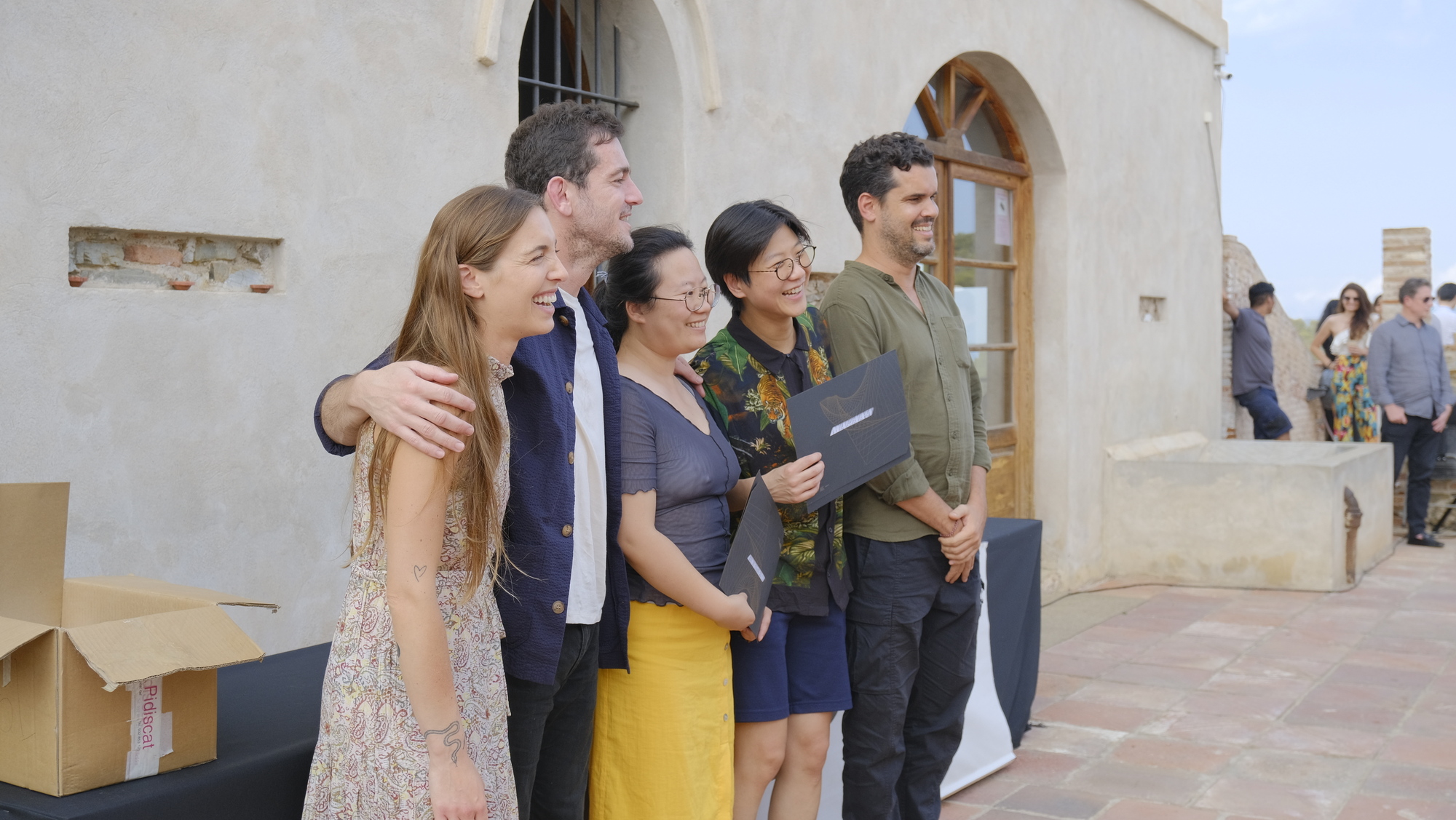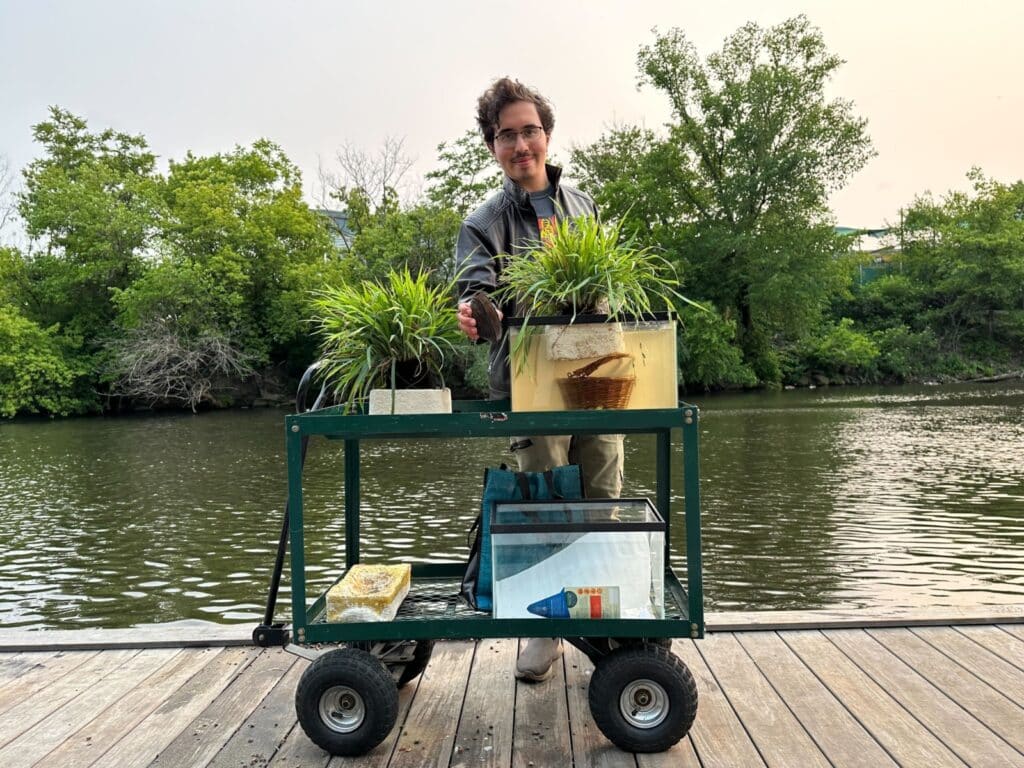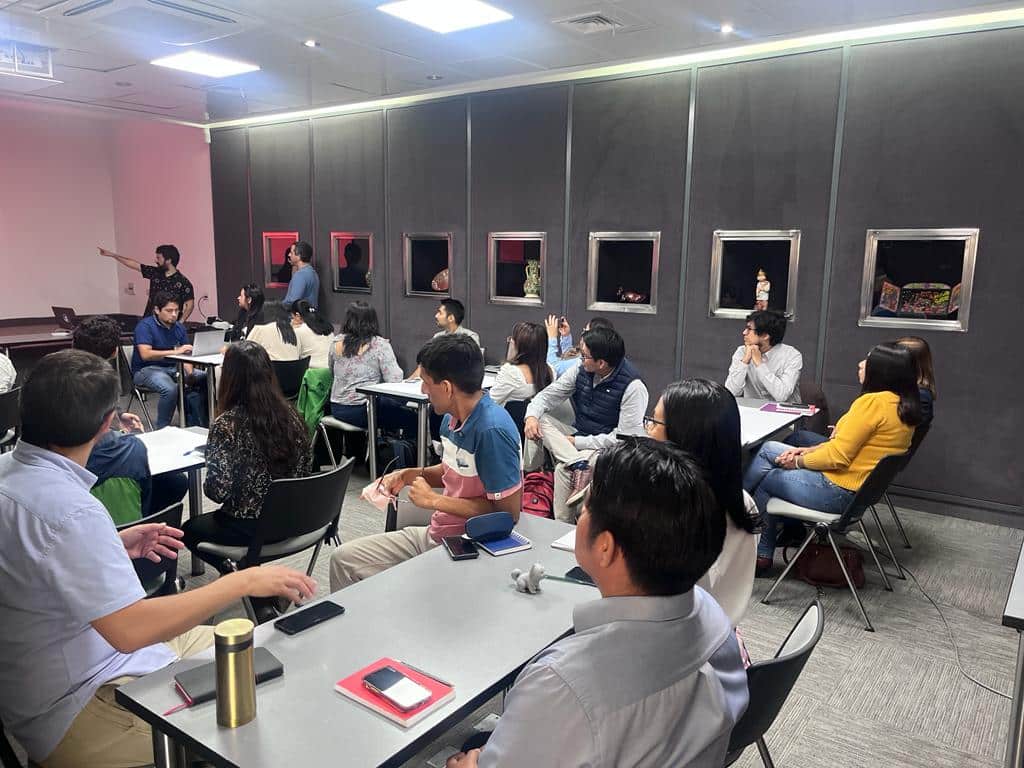
Building a distributed network of designers and innovators to transform local realities
The Master in Design for Distributed Innovation: Addressing global challenges to enable local transformation, by learning from and adapting global knowledge
The Master in Design for Distributed Innovation (MDDI) is a platform aimed towards empowering participants to apply innovation at the local level through a comprehensive toolkit of skills and methodologies. By joining MDDI, you will gain expertise in a wide range of tools such as AI, blockchain, biotech, and digital fabrication. The master is your gateway to immerse yourself in the vibrant global Fab Lab and Fab City communities, where experts from around the world converge in Innovation Labs, fostering fruitful collaborations, idea exchange, and lasting connections.
MDDI offers innovators and changemakers the opportunity to address global challenges in their working and living contexts to enable local transformation, by learning from and adapting global knowledge. Its graduates will have the possibility to integrate the knowledge acquired in the program into their working environments or expand their research agenda after the program.
Current students of the master have been developing a foundational understanding of the implications of design and its relationship with natural, technological and social ecosystems. By applying methodological tools to design valuable and meaningful solutions they have developed sustainable and innovative design systems based on the reconfiguration of technology, social dynamics and resources. Let’s look at some stories from the first edition of MDDI:
Gabriel Tavas, an entrepreneur with a science background in sustainable design based in Chicago, USA, joined the Master in Design for Distributed Innovation to work on one of his lifetime dream projects. Gabriel wants to build regenerative technologies to recover natural ecosystems, and that’s why he has partnered with the Urban Rivers initiative to develop their master project. Together, they have successfully prototyped and implemented a bio-water filtering system using mussels in the Chicago River. This innovative application is now ready to be scaled and implemented in urban rivers around the world, and Gabriel seems to be determined to do it.

In Frankfurt, Germany, Italian-born Giulia Comfort decided to upgrade her background in policy-making, to seek deeper knowledge in technology, and look for ways to apply it to innovative projects. During MDDI, Giulia has been actively tackling the issue of food waste management in Europe. To approach her ambitious goal, she started to identify the opportunities in her closest community and decided to start at her daughter’s school. By employing fermentation biotechnology as a means to preserve food and maximize its health benefits, coupled with collaboration efforts with local markets and school communities, Giulia is designing an open collection of fermented products that not only combat food waste but also contribute to improved health and wellness. Her innovative approach is gaining recognition for its positive impact on sustainability and community engagement. Inspired by her MDDI journey, Giulia decided to leave her 9-to-5 job in the European parliament and start the unknown journey of the entrepreneur.
Victor Freundt is an industrial designer from Peru who established the first Fab Lab in Latin America, Fab Lab Lima in 2009. Victor was one of two selected candidates to study the first edition of the Fab Academy program in Barcelona, he used the experience to start the Fab Lab and he has since become a regional leader in the Fab Lab movement. Victor currently works in the Ministry of Tourism in Perú and decided to join MDDI to take his previous knowledge of digital fabrication and community development to the next level. MDDI has been instrumental in laying the foundation for the establishment of the Tourism Lab, an exciting new public initiative supported by government funding, and led by Victor. This groundbreaking project aims to bridge the gap between artisans, tourists, and Fab Labs, fostering collaboration to co-create innovative circular products. By facilitating these connections, Tourism Lab is set to revolutionize the tourism industry while empowering local artisans and promoting sustainable practices.

These examples show how we can harness the power of digital connectivity to exchange knowledge, while also translating and adapting it in a local context in any locality in the world. We are faced with an urgent need to take action due to the current state of our planet, and moonshots are not an option anymore. Fab Labs and Maker Spaces can offer local innovators access to tools to transform their surrounding environments, and we have seen this for over a decade in the Fab Academy program. MDDI brings a complementary set of skills to expand the impact of distributed design and manufacturing, and to enhance the power of open source collaboration.
Amidst the overwhelming challenges we face, adopting methodological and systemic approaches becomes fundamental to analyzing, experimenting, and implementing urban and territorial innovations in an iterative and evolving design process. MDDI is designed using the multiscalar approach outlined by the Fab City global initiative. This layered approach forms the basis of the program, framing the methodological approach to conceptualising transformational change. The Fab City Full Stack is a working taxonomy developed by the Fab City Foundation to organise and implement projects at different scales. Composed of complementary and non-linear layers for cities, regions and towns, to make the Fab City implementation in a multiscalar and ecosystemic approach operational. Each interconnected layer is a space of practice and deployment, scaling Fab Lab experiences to a bioregional level in a systemic approach.
Read more about the Master in Design for Distributed Innovation here!